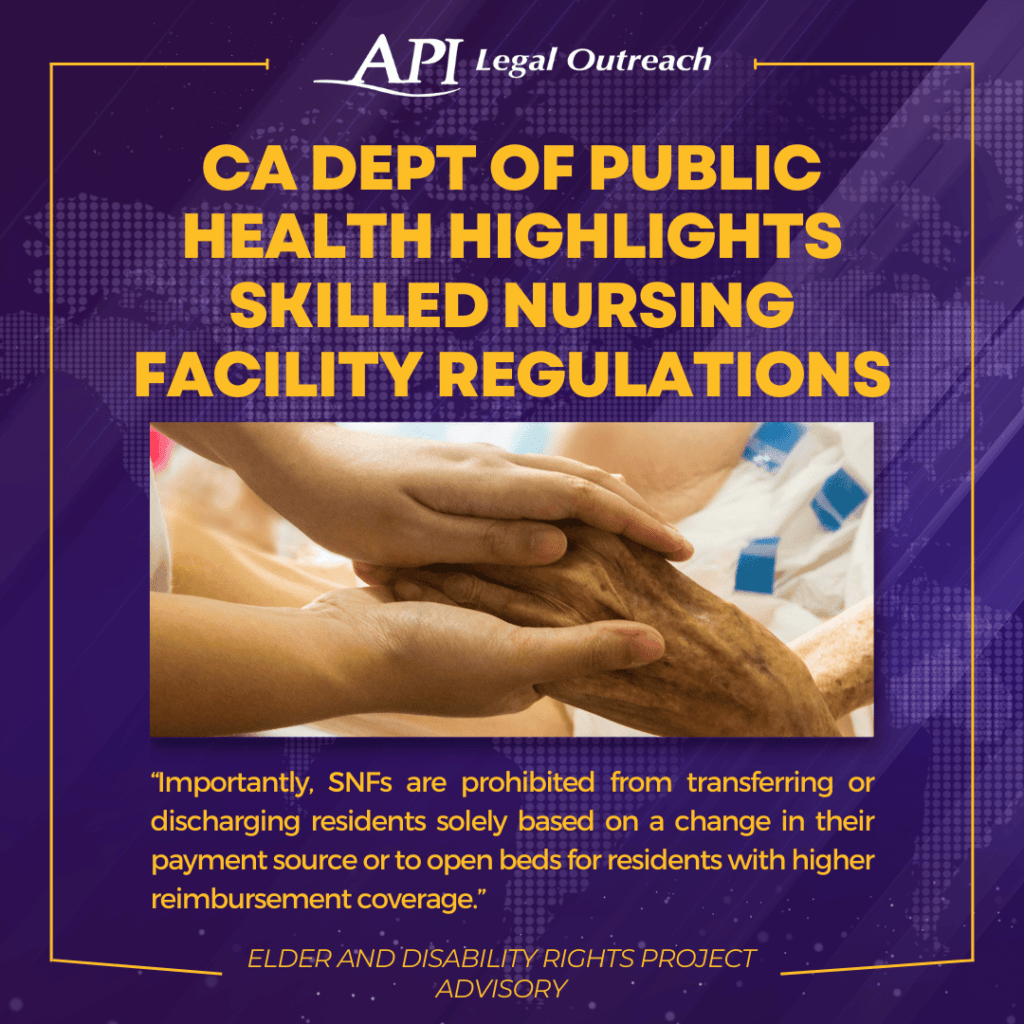California Department of Public Health Highlights Skilled Nursing Facility Regulations
Practice Advisory: Elder and Disability Rights ProjectIn a recent communication from the California Department of Public Health (CDPH), the state agency emphasized the stringent regulations governing Skilled Nursing Facilities (SNFs) with regards to resident rights, admission requirements, and transfer and discharge protocols. This communication serves as a reminder to SNFs about their obligations to ensure quality care and equal access for all residents, regardless of their diagnosis, condition severity, or payment source.

Continuous Skilled Nursing Care Mandate
SNFs are mandated to provide continuous skilled nursing care and supportive care to residents whose primary need is for skilled nursing care on an extended basis. According to California licensing laws, SNFs are designated as long-term healthcare facilities catering to patients requiring skilled nursing care on a continuous and extended basis. Importantly, SNFs are prohibited from transferring or discharging residents solely based on a change in their payment source or to open beds for residents with higher reimbursement coverage.
Resident Rights Protection
Under Title 42 CFR section 483.10(a)(2), SNFs are obligated to provide residents with equal access to quality care, irrespective of diagnosis, severity of condition, or payment source. Beds for skilled nursing care are specifically designated for residents requiring such care on a continuous and extended basis, as outlined in Title 22 CCR section 72101.
Admission Requirements and Non-Discrimination
Title 42 CFR section 483.15(a)(2)(ii) explicitly states that SNFs should not request assurances from residents or potential residents regarding their eligibility for or intention to apply for Medicare or Medicaid benefits. The State Operations Manual emphasizes that facilities must not seek any assurances, either directly or indirectly, regarding residents’ eligibility for these benefits, preserving residents’ rights to access necessary healthcare resources.
Transfer and Discharge Safeguards
Both federal and state regulations place limitations on when a SNF can initiate a transfer or discharge, prioritizing the welfare of residents. Pursuant to Title 22 CCR section 72527(a)(6), residents have the right to be transferred or discharged only for medical reasons, the resident’s welfare, the welfare of other residents, or nonpayment. The State Operations Manual highlights that discharges of residents admitted for short-term rehabilitation who express an unwillingness to leave the facility may be investigated for potential discrimination.
Furthermore, Title 42 CFR section 483.15(c)(1)(i) outlines specific circumstances under which transfer or discharge is permissible, including the resident’s welfare, improved health status, safety concerns, non-payment, or if the facility ceases to operate.
In summary, the California Department of Public Health emphasizes that SNFs must adhere to all applicable laws and regulations governing the rights, admission, transfer, and discharge of residents. SNFs are encouraged to refer to the California Standard Admission Agreement and relevant state and federal requirements for comprehensive information on these critical aspects of resident care. (Source: State of California—Health and Human Services Agency California Department of Public Health)
About the APILO’s Elder and Disability Rights Project:
APILO’s Elder and Disability Rights Project provides legal services in a variety of areas to assist elders and individuals with disabilities to receive public benefits and live a life free from abuse. The Elder Team works to both to prevent abuse towards elders and people with disabilities and to assist survivors of abuse. We work closely with senior centers, churches, and senior meal sites to keep our services accessible. With a team of exemplary attorneys and dedicated staff, the team provides a wide range of legal services, including naturalization assistance, other immigration cases, Elder Abuse, Estate planning, eviction defense, conservatorship, guardianship, and restraining orders to name a few.
If you want to learn more about what our team does, please feel free to reach out to us.






